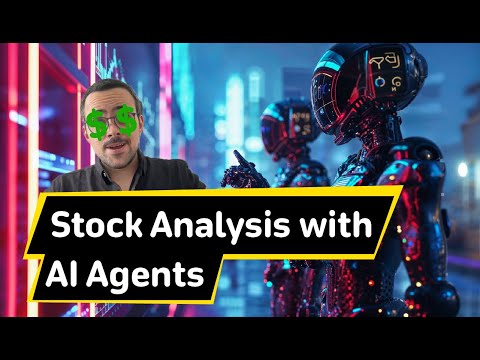Cutting-edge framework for orchestrating role-playing, autonomous AI agents. By fostering collaborative intelligence, CrewAI empowers agents to work together seamlessly, tackling complex tasks.
Project description
crewAI
🤖 Cutting-edge framework for orchestrating role-playing, autonomous AI agents. By fostering collaborative intelligence, CrewAI empowers agents to work together seamlessly, tackling complex tasks.
- Why CrewAI
- Getting Started
- Key Features
- Examples
- 💬 CrewAI Discord Community
- Local Open Source Models
- CrewAI x AutoGen x ChatDev
- Contribution
- License
Why CrewAI?
The power of AI collaboration has too much to offer. CrewAI is designed to enable AI agents to assume roles, share goals, and operate in a cohesive unit - much like a well-oiled crew. Whether you're building a smart assistant platform, an automated customer service ensemble, or a multi-agent research team, CrewAI provides the backbone for sophisticated multi-agent interactions.
Getting Started
To get started with CrewAI, follow these simple steps:
- Installation:
pip install crewai
The example bellow also uses duckduckgo, so also install that
pip install duckduckgo-search
- Setting Up Your Crew:
import os
from crewai import Agent, Task, Crew, Process
os.environ["OPENAI_API_KEY"] = "Your Key"
# Define your tools, custom or not.
# Install duckduckgo-search for this example:
#
# !pip install -U duckduckgo-search
from langchain.tools import DuckDuckGoSearchRun
search_tool = DuckDuckGoSearchRun()
# Define your agents with roles and goals
researcher = Agent(
role='Senior Research Analyst',
goal='Uncover cutting-edge developments in AI and data science in',
backstory="""You are a Senior Research Analyst at a leading tech think tank.
Your expertise lies in identifying emerging trends and technologies in AI and
data science. You have a knack for dissecting complex data and presenting
actionable insights.""",
verbose=True,
allow_delegation=False,
tools=[search_tool]
# llm=OpenAI(temperature=0.7, model_name="gpt-4"). It uses langchain.chat_models, default is GPT4
)
writer = Agent(
role='Tech Content Strategist',
goal='Craft compelling content on tech advancements',
backstory="""You are a renowned Tech Content Strategist, known for your insightful
and engaging articles on technology and innovation. With a deep understanding of
the tech industry, you transform complex concepts into compelling narratives.""",
verbose=True,
allow_delegation=True
)
# Create tasks for your agents
task1 = Task(
description="""Conduct a comprehensive analysis of the latest advancements in AI in 2024.
Identify key trends, breakthrough technologies, and potential industry impacts.
Compile your findings in a detailed report.""",
agent=researcher
)
task2 = Task(
description="""Using the insights from the researcher's report, develop an engaging blog
post that highlights the most significant AI advancements.
Your post should be informative yet accessible, catering to a tech-savvy audience.
Aim for a narrative that captures the essence of these breakthroughs and their
implications for the future.""",
agent=writer
)
# Instantiate your crew with a sequential process
crew = Crew(
agents=[researcher, writer],
tasks=[task1, task2],
verbose=2, # Crew verbose more will let you know what tasks are being worked on, you can set it to 1 or 2 to different logging levels
process=Process.sequential # Sequential process will have tasks executed one after the other and the outcome of the previous one is passed as extra content into this next.
)
# Get your crew to work!
result = crew.kickoff()
print("######################")
print(result)
Currently the only supported process is Process.sequential, where one task is executed after the other and the outcome of one is passed as extra content into this next.
Key Features
- Role-Based Agent Design: Customize agents with specific roles, goals, and tools.
- Autonomous Inter-Agent Delegation: Agents can autonomously delegate tasks and inquire amongst themselves, enhancing problem-solving efficiency.
- Flexible Task Management: Define tasks with customizable tools and assign them to agents dynamically.
- Processes Driven: Currently only supports
sequentialtask execution but more complex processes like consensual and hierarchical being worked on.
Examples
You can test different real life examples of AI crews in the examples repo
Code
Video
Trip Planner
Stock Analysis
Local Open Source Models
crewAI supports integration with local models, thorugh tools such as Ollama, for enhanced flexibility and customization. This allows you to utilize your own models, which can be particularly useful for specialized tasks or data privacy concerns.
Setting Up Ollama
- Install Ollama: Ensure that Ollama is properly installed in your environment. Follow the installation guide provided by Ollama for detailed instructions.
- Configure Ollama: Set up Ollama to work with your local model. You will probably need to tweak the model using a Modelfile. I'd recommend adding
Observationas a stop word and playing withtop_pandtemperature.
Integrating Ollama with CrewAI
- Instantiate Ollama Model: Create an instance of the Ollama model. You can specify the model and the base URL during instantiation. For example:
from langchain.llms import Ollama
ollama_openhermes = Ollama(model="openhermes")
# Pass Ollama Model to Agents: When creating your agents within the CrewAI framework, you can pass the Ollama model as an argument to the Agent constructor. For instance:
local_expert = Agent(
role='Local Expert at this city',
goal='Provide the BEST insights about the selected city',
backstory="""A knowledgeable local guide with extensive information
about the city, it's attractions and customs""",
tools=[
SearchTools.search_internet,
BrowserTools.scrape_and_summarize_website,
],
llm=ollama_openhermes, # Ollama model passed here
verbose=True
)
How CrewAI Compares
-
Autogen: While Autogen excels in creating conversational agents capable of working together, it lacks an inherent concept of process. In Autogen, orchestrating agents' interactions requires additional programming, which can become complex and cumbersome as the scale of tasks grows.
-
ChatDev: ChatDev introduced the idea of processes into the realm of AI agents, but its implementation is quite rigid. Customizations in ChatDev are limited and not geared towards production environments, which can hinder scalability and flexibility in real-world applications.
CrewAI's Advantage: CrewAI is built with production in mind. It offers the flexibility of Autogen's conversational agents and the structured process approach of ChatDev, but without the rigidity. CrewAI's processes are designed to be dynamic and adaptable, fitting seamlessly into both development and production workflows.
Contribution
CrewAI is open-source and we welcome contributions. If you're looking to contribute, please:
- Fork the repository.
- Create a new branch for your feature.
- Add your feature or improvement.
- Send a pull request.
- We appreciate your input!
Installing Dependencies
poetry lock
poetry install
Virtual Env
poetry shell
Pre-commit hooks
pre-commit install
Running Tests
poetry run pytest
Packaging
poetry build
Installing Locally
pip install dist/*.tar.gz
License
CrewAI is released under the MIT License
Project details
Release history Release notifications | RSS feed
Download files
Download the file for your platform. If you're not sure which to choose, learn more about installing packages.
Source Distribution
Built Distribution
File details
Details for the file crewai-0.1.17.tar.gz.
File metadata
- Download URL: crewai-0.1.17.tar.gz
- Upload date:
- Size: 17.8 kB
- Tags: Source
- Uploaded using Trusted Publishing? No
- Uploaded via: twine/4.0.2 CPython/3.11.7
File hashes
| Algorithm | Hash digest | |
|---|---|---|
| SHA256 |
c50141de66d2ae53efe86070ca2a48e6b5d25c209266411845ae8ee358f7f90d
|
|
| MD5 |
5c4935bdad5edc651d38fb6bcf6d22bf
|
|
| BLAKE2b-256 |
0ae6a08d86cbbc77d3c7b6a573bfe81b1196a59ffe4b8cb4ec53863583661b81
|
File details
Details for the file crewai-0.1.17-py3-none-any.whl.
File metadata
- Download URL: crewai-0.1.17-py3-none-any.whl
- Upload date:
- Size: 19.3 kB
- Tags: Python 3
- Uploaded using Trusted Publishing? No
- Uploaded via: twine/4.0.2 CPython/3.11.7
File hashes
| Algorithm | Hash digest | |
|---|---|---|
| SHA256 |
15518dccf1abc25e28ecebad3c9fa591b2afe6aa807113b0428ddbaca6e6b338
|
|
| MD5 |
204ba7224b839027c5d923713f4167c1
|
|
| BLAKE2b-256 |
7483ddadfa93bc3f7c3fbb3d4777f27ab6f64aca49f1292aca452ca81b88b310
|















